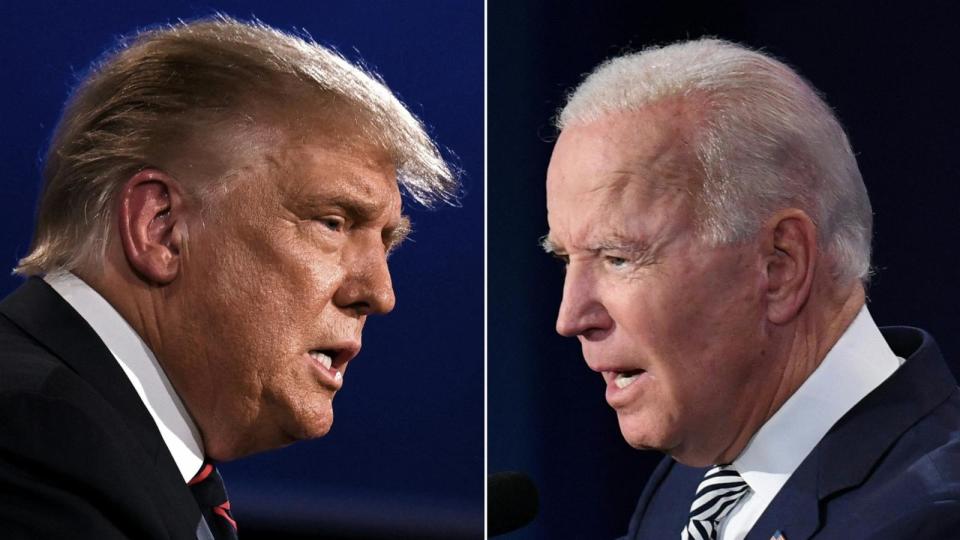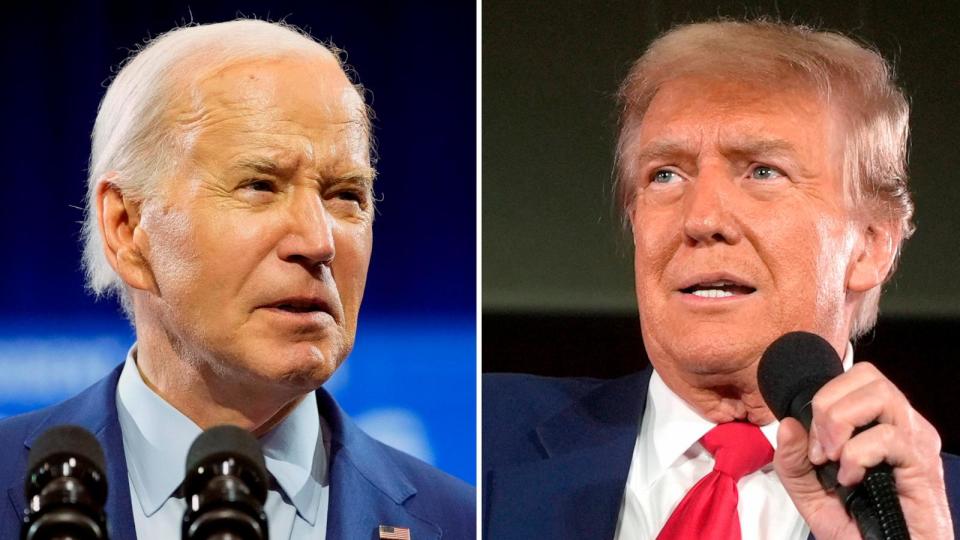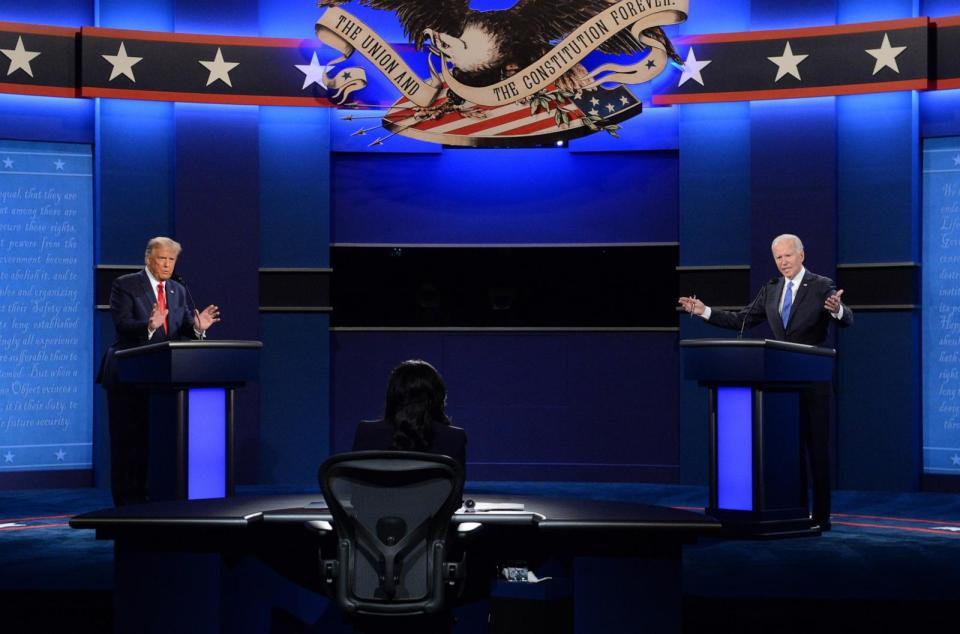How do voters feel about the Biden-Trump debates? And will they make a difference?
- Oops!Something went wrong.Please try again later.
- Oops!Something went wrong.Please try again later.
With two televised debates between President Joe Biden and former President Donald Trump set for June and September, some undecided voters ABC News spoke with are expressing excitement about the prospect -- but say they're unsure if what they'll watch onscreen will have an impact on who they'll vote for.
Biden and Trump are set to face off in a presidential debate hosted by CNN on June 27, and a debate hosted by ABC News on Sept. 10.
The Biden campaign has insisted on various conditions, including taking place in TV studios with no live audience and microphones that cut off when a candidate's allotted time is up.
MORE: Biden, Trump agree to ABC News and CNN debates

Doug Barth, a retired Montana resident who is undecided but leans Democratic, told ABC News that he approved of some of the conditions set by the Biden campaign.
"I feel good that there's not going to be an audience, because I think you'd have too many people on the extremes, on both the left or right, that might sway the demeanor of the candidates," Barth said.
But he felt pessimistic about the debates overall, saying that they'll be a "waste of time" because he thinks "Trump can't talk without lying, and I hate seeing him have a platform for lies," Barth said.
From Biden, he's looking to see how the president comes across and if "people can have confidence in what he's saying."
MORE: Debates offer candidates large, risky platform for contrast: ANALYSIS
Whether debates help voters make up their minds is itself a debate.
A Pew Research Center analysis of surveys the organization conducted between 1998 and 2016 found that usually, more than half of voters said debates were "very or somewhat helpful" in how they decided who to vote for. But in some years, far fewer voters said that the debates truly changed their opinion. In 2012 and 2016, only 10% of voters said they had definitively made up their minds "during or just after" the debates.

Experts say that's not unexpected.
"There's a tendency to think that [debates] really shift voter attitudes. But I think that they're part of a broader process," Kathryn Cramer Brownell, a history professor and expert on politics and media at Purdue University, told ABC News.
"It creates an opportunity … for everyone to watch the same events and hear the same conversation at the same time."
Julie Tetuan, a senior manager in the pharmaceutical industry and an undecided voter from Tennessee who said she is registered as a Republican, told ABC News she thinks the fact that there will be debates is positive -- but she also does not think it will change her views on the candidates.
"Having debates should be a requirement before an election," Tetuan said. "I don't think it's going to really sway me because I -- like most people -- have a solid sense of what the candidates are, how they interact with voters … how they generally carry themselves, how they approach issues, how they approach others."
She called the debates "good political theater," and thinks it could have an impact on the race "if it goes terribly for one or the other … I just don't think they're necessarily impactful in terms of clarifying policy."

The timing of the newly set debates also marks a shift from precedent. Brownell said that general election debates are usually after the major party conventions, where both the candidate's and party's positions are made clearer -- so having them before the conventions marks a key change.
Matthew Labkovski, an undecided voter from Florida, expressed optimism about the rethought schedule, although he is skeptical as well if the debates will change his views.
"Listen, if they do debates through September, like they promised… [it] shows how they're responding to modern circumstances, what's happening in real time," Labkovski said.
ABC News' Libby Cathey, Gabriella Abdul-Hakim, Fritz Farrow, and Isabella Murray contributed to this report.
How do voters feel about the Biden-Trump debates? And will they make a difference? originally appeared on abcnews.go.com

